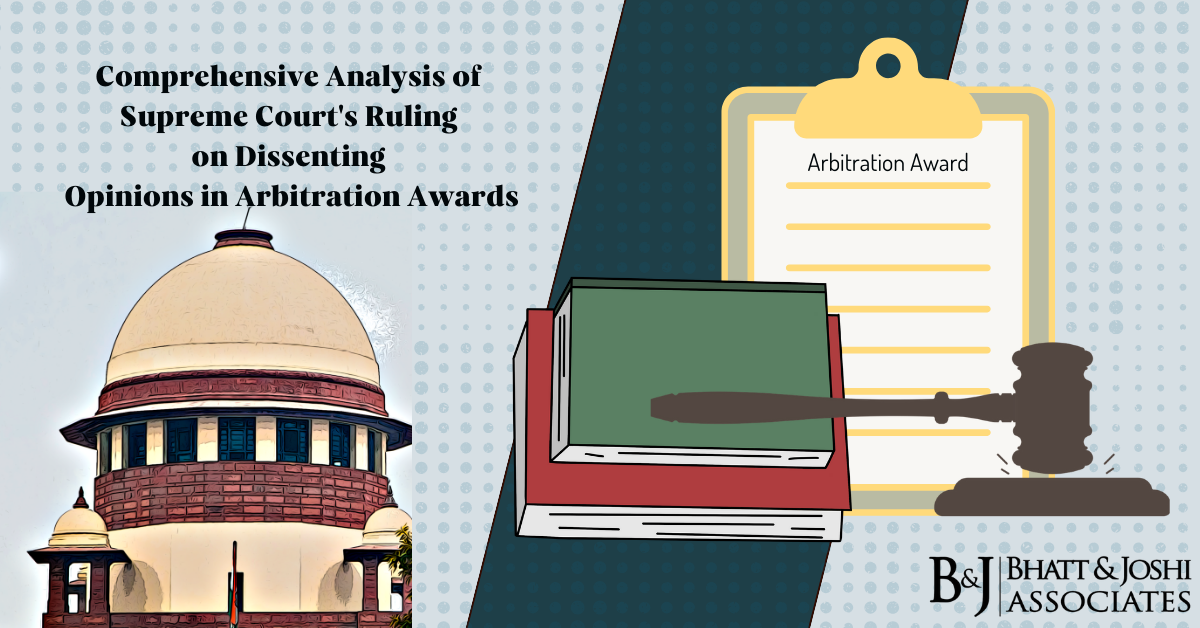Dissenting Opinions in Arbitration Awards: A Comprehensive Analysis of Supreme Court’s Ruling
Introduction
In a significant legal development, the Supreme Court of India has addressed the intricate question of the legal standing of dissenting opinions in arbitration awards. The case in focus, Hindustan Construction Company Ltd. Vs. National Highways Authority of India, brought forth the crucial inquiry of whether a dissenting opinion within an arbitration panel can be elevated to the status of an award if the majority decision is set aside. This article delves deep into the subtleties of the Supreme Court’s judgment, providing insights into the legal principles and ramifications surrounding the case.
Background
The genesis of the dispute lies in the arbitration proceedings involving Hindustan Construction Company Ltd. (HCC) and the National Highways Authority of India (NHAI). The arbitration panel issued a majority award accompanied by a dissenting opinion. HCC, dissatisfied with both the unanimous and majority views, contested them under Section 34 of the Arbitration and Conciliation Act, 1996. The Supreme Court’s intervention was sought following a division bench’s interpretation, sparking debates about the extent of judicial intervention in arbitration awards.
Role of the Court Under Section 34
The Supreme Court reiterated the restricted scope of judicial intervention under Section 34 of the Arbitration and Conciliation Act. It emphasized the imperative for courts to uphold the autonomy of arbitration tribunals, particularly in technical disputes. The judgment underscored the principle that courts should exercise restraint and refrain from interfering with the tribunal’s findings unless an award is patently illegal or based on an implausible interpretation.
Significance of Dissenting Opinions in Arbitration Awards
The Court clarified that while dissenting opinions offer valuable insights, they cannot attain the status of an award if the majority decision is set aside. The rationale behind this stipulation is that dissenting opinions do not undergo the same level of scrutiny as the majority award during legal challenges, rendering it inappropriate to elevate them to the status of an award.
Supreme Court Upholds Arbitration Awards Despite Dissenting Opinions
Allowing the appeals, the Supreme Court set aside the judgments of the Delhi High Court that had contested the arbitration awards. The Court reinstated the awards, modifying the direction related to compounded monthly interest payments to uniform interest rates, thereby affirming the majority awards of the arbitration tribunals.
Conclusion: Supreme Court’s Stance on Dissenting Opinions in Arbitration Awards
This judgment marks a watershed moment in arbitration law, reinforcing the sanctity of arbitration tribunals’ decisions and outlining the circumscribed role of courts in reviewing arbitration awards. By elucidating the legal standing of dissenting opinions within arbitration panels, the Supreme Court has brought clarity and certainty to the arbitration process. This decision is poised to exert profound implications on the landscape of arbitration in India, ensuring the continued efficacy and efficiency of arbitration as a mechanism for resolving commercial disputes. Crafted on the foundation of Supreme Court judgments, this article serves as a comprehensive guide for legal practitioners and scholars, shedding light on the nuanced legal intricacies surrounding arbitration awards and dissenting opinions in India.










